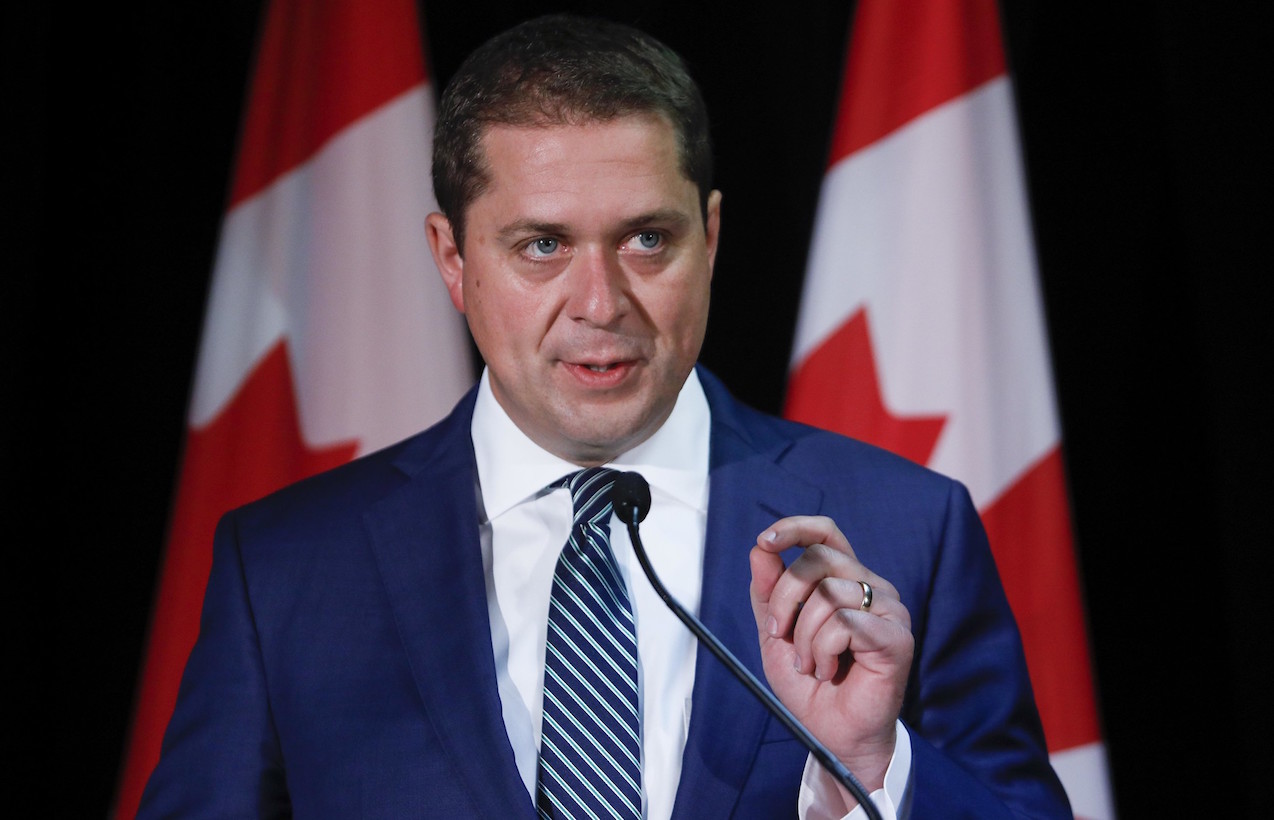In the 2019 election, the Conservative Party of Canada (CPC) failed to meet partisan expectations. It was supposed to dislodge a vulnerable Liberal government falling in popularity in the months prior to the October 21 election.
A “blame the leader for the defeat” movement has emerged in the CPC, even though the party won 23 more seats with Andrew Scheer in 2019 (122) than behind Stephen Harper in 2015 (99).
Scheer ran a campaign aimed at getting core CPC voters out to vote by demonizing Prime Minister Justin Trudeau.
Instead of wooing first-time voters concerned about climate change, the CPC anti-carbon tax rhetoric drove them to vote for other parties.
Team Scheer forgot that electoral politics is about addition, not subtraction; about reaching out to people, not reducing potential support.
The Conservative leader had no words to explain how his personal views against same-sex marriage and women’s reproductive freedom promoted CPC aspirations to govern Canada, a country where a large majority approve of laws protecting these hard-won rights.
One of Scheer’s leadership campaign promises was to abolish CBC News (and the French equivalent Radio-Canada Information).
The CBC was a project of former Conservative prime minister R.B. Bennett. Why would a Conservative party leader want to undo a project of an earlier Conservative, one who also brought the Bank of Canada and CN Rail into existence?
Mainly because Scheer is not a Canadian Conservative — indeed, Scheer and the CPC have little in common with the former Progressive Conservative (PC) party, familiarly known as the Tories after their British counterparts, and incarnated by leaders such as R.B. Bennett, John Diefenbaker, Robert Stanfield and Joe Clark.
Historically, Canadian PCs have been wary of U.S. domination of the economy, loyal to principles of British cabinet government, protective of institutions such as the courts, universities, banks, churches and military, and anxious to protect the weak and vulnerable from the excesses of liberal capitalism.
Successful PC premiers from Peter Lougheed in Alberta to John Robarts in Ontario believed government spending could prevent the worst and bring out the best in people; that they as leaders had a duty to the less fortunate in society, providing security for the future for young families and elders alike.
The CPC was the product of a 2003 merger of the federal PC party led by Peter MacKay and the Canadian Alliance led by Stephen Harper.
CPC roots are firmly planted in the Reform party of Preston Manning (which morphed into the Canadian Alliance), not in the PCs.
Reform ideas, in turn, bear the imprint of Preston’s father, longtime Alberta premier Ernest C. Manning, whose political fortunes were buoyed by the 1947 big oil discovery in Leduc, just south of Edmonton.
In his book Political Realignment: A Challenge to Thoughtful Canadians (1967), Manning père called for the formation of an explicitly right-wing social conservative party to offset the centre-left movement in federal politics by Tories and Liberals that culminated in the adoption of medicare.
Just like the United Conservative Party (UCP) in Alberta and the Doug Ford PC party of Ontario, the CPC ran a campaign mimicking U.S. Republicans: presenting themselves to voters as a low-tax, anti-government party, comfortable with a social conservative agenda.
The unpopularity of Ford was widely credited for undermining Scheer in Ontario. Indeed, Ford’s unpopularity extends outside Ontario to Quebec and Atlantic Canada, where government is recognized as positive and necessary, not just as too expensive and a target for cutbacks.
Alberta Premier Jason Kenney waited until after the federal election before introducing his dramatic budget cuts to essential services, cities, cultural industries, the arts, public universities and colleges (but not Christian private higher education). Had he revealed his plans earlier, the Trudeau Liberals might have kept a foothold in Alberta.
The 2014 plunge in the price of oil, down from over $100 per barrel to less than $50 by 2016, has pushed Alberta into a recession it has yet to escape.
The Kenney budget will only make it worse. The UCP have bet the house, the farm, and the cattle on oil and gas price increases that are nowhere in sight.
The Harper CPC touted Canada as an energy superpower. This vision of Canada has disappeared from view.
Without prosperity from oil and gas, the CPC was missing a big economic idea. In central Canada, voters figured that out.
In 2019, the Conservatives lost voting share (compared to the 2015 election) in 144 ridings: 139 of these were in Ontario and Quebec.
The name being mentioned to replace Andrew Scheer is Peter MacKay, the last of the federal PC leaders.
Party insiders expect MacKay is more likely to put a traditional Tory face on the CPC than the Republican one given it by Harper and Scheer.
Duncan Cameron is president emeritus of rabble.ca and writes a weekly column on politics and current affairs.
Image: Andrew Scheer/Flickr



